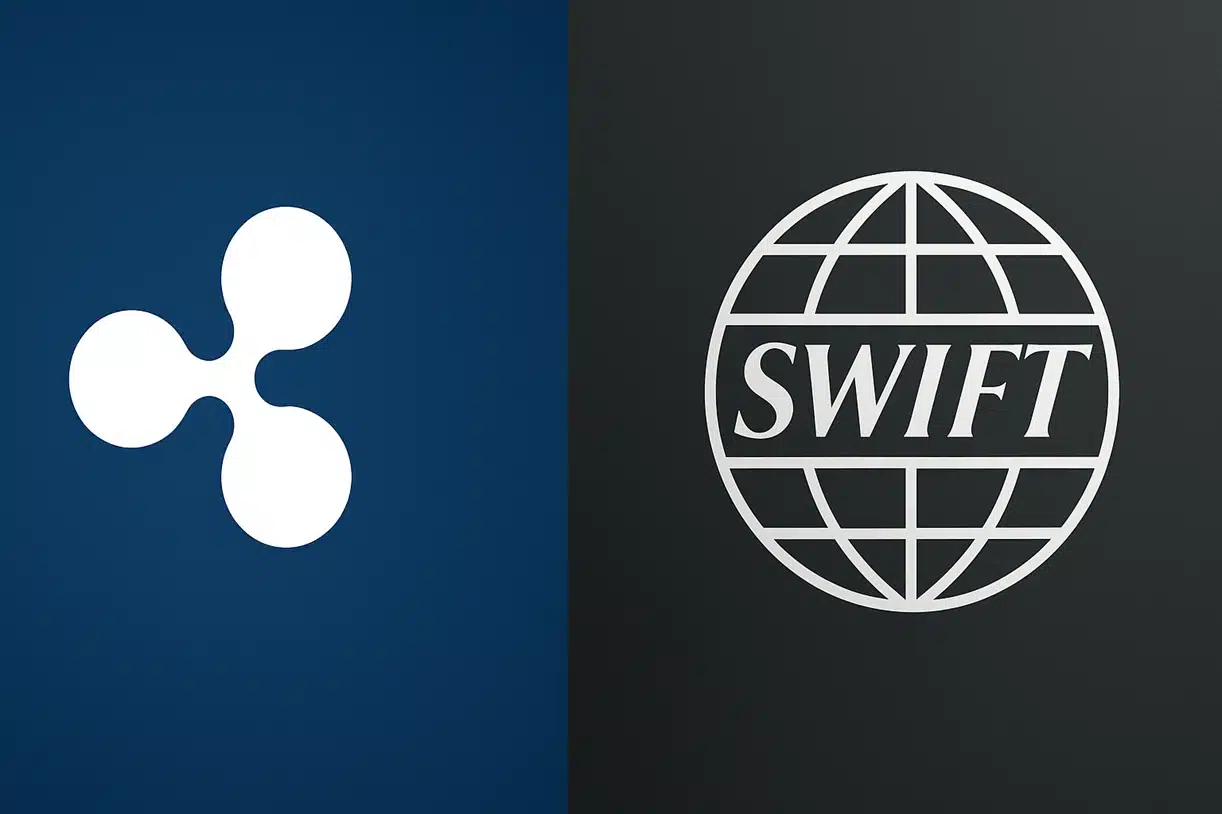- Swift CIO says banks reject XRP, favor stablecoins and deposits.
- Ripple supporters defend XRP’s neutrality in global cross-border settlements.
- Debate intensifies as Swift and Ripple compete for banking clients.
A heated debate has emerged in the digital payments space after Swift’s Chief Innovation Officer, Tom Zach, openly dismissed XRP’s role in global banking. According to a video shared by BULLRUNNERS on X, Zach stated that banks will continue to favor other internal payment rails, tokenized deposits, or regulated stablecoins such as USDC instead of XRP.
He explained that XRP does not qualify as a deposit, is not regulated money, and cannot be listed on bank balance sheets. For this reason, he argued that financial institutions will avoid using it as part of their core settlement infrastructure.
He went further to label the digital asset a “dead chain walking,” claiming banks require neutral governance instead of payment rails controlled by a single company like Ripple.
Community Defends XRP’s Neutral Settlement Role
The statement quickly triggered responses from the XRP community, which highlighted that the XRP Ledger has operated for more than a decade without disruption. Supporters argued that XRP is independent of any single institution, making it a neutral bridge asset capable of enabling settlements between banks.
Also Read: Analyst Reveals When ‘the Real XRP Rally’ Will Start
They pointed out that trillions of dollars remain locked in pre-funded accounts around the world to support cross-border payments. According to them, bank-specific solutions such as JPMorgan’s internal rails or HSBC’s networks cannot solve the inefficiencies once funds move between different institutions. They insisted that XRP eliminates the need for such pre-funding by providing a scalable and neutral settlement option.
Ripple and SWIFT Competing for the Same Clients
The video also highlighted that Ripple and Swift are competing for the same global clientele. Both firms aim to modernize cross-border transactions, but their approaches differ significantly. Swift promotes tokenized deposits and stablecoins, while Ripple continues to build use cases around XRP to address liquidity and settlement challenges.
Zach stressed that liquidity alone cannot satisfy banking requirements, adding that legal enforceability is just as important. In contrast, Ripple’s supporters emphasized that the company has worked with regulators in key jurisdictions for years. Following the dismissal of appeals in its case with the SEC, Ripple has strengthened its compliance position and continues to expand On-Demand Liquidity corridors.
Conclusion
Tom Zach’s comments underline Swift’s belief that regulated stablecoins and tokenized deposits will dominate banking settlements, leaving XRP outside institutional frameworks. However, Ripple supporters maintain that its neutrality, efficiency, and regulatory progress make it well-positioned to challenge traditional systems in the evolving landscape of global finance.
Also Read: Bitcoin Steady at $111,000 as Dogecoin Soars 7% and MYX Finance Explodes 159% in 24 Hours
